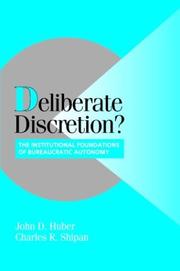| Listing 1 - 3 of 3 |
Sort by
|
Book
Year: 2002 Publisher: [Gaithersburg, Md.] : U.S. Dept. of Commerce, Technology Administration, National Institute of Standards and Technology,
Abstract | Keywords | Export | Availability | Bookmark
 Loading...
Loading...Choose an application
- Reference Manager
- EndNote
- RefWorks (Direct export to RefWorks)
Balances (Weighing instruments) --- Scales (Weighing instruments) --- Calibration --- Standards
Book
ISBN: 9062158358 Year: 2002 Publisher: Antwerpen Maklu
Abstract | Keywords | Export | Availability | Bookmark
 Loading...
Loading...Choose an application
- Reference Manager
- EndNote
- RefWorks (Direct export to RefWorks)
Budgettering --- 657.3 --- 658.15 --- 364.2 --- budgettering --- Budgets. Estimates. Closure of accounts. Business records. Balances --- Private financial management. Financial administration of enterprises --- Contains audio-visual material --- Budgettering. --- 658.15 Private financial management. Financial administration of enterprises --- 657.3 Budgets. Estimates. Closure of accounts. Business records. Balances --- Corporate finance

ISBN: 0521817447 0521520703 0511804911 9780521817448 9780521520706 9780511804915 Year: 2002 Publisher: Cambridge Cambridge University Press
Abstract | Keywords | Export | Availability | Bookmark
 Loading...
Loading...Choose an application
- Reference Manager
- EndNote
- RefWorks (Direct export to RefWorks)
The laws that legislatures adopt provide the most important and definitive opportunity elected politicians have to define public policy. But the ways politicians use laws to shape policy varies considerably across polities. In some cases, legislatures adopt detailed and specific laws in efforts to micromanage policy-making processes. In others, they adopt general and vague laws that leave the executive and bureaucrats substantial autonomy to fill in the policy details. What explains these differences across political systems, and how do they matter? The authors address this issue by developing and testing a comparative theory of how laws shape bureaucratic autonomy. Drawing on a range of evidence from advanced parliamentary democracies and the American states, they argue that particular institutional forms have a systematic and predictable effect on how politicians use laws to shape the policy making process.
Separation of powers --- Political planning --- Bureaucracy --- Law --- Comparative government --- Political aspects --- Law and politics --- #SBIB:35H006 --- #SBIB:324H20 --- #SBIB:033.IO --- Comparative political systems --- Comparative politics --- Government, Comparative --- Political systems, Comparative --- Political science --- Interorganizational relations --- Public administration --- Organizational sociology --- Planning in politics --- Public policy --- Planning --- Policy sciences --- Politics, Practical --- Checks and balances (Separation of powers) --- Division of powers --- Powers, Separation of --- Constitutional law --- Delegation of powers --- Executive power --- Judicial independence --- Judicial power --- Judicial review --- Legislative power --- Bestuurswetenschappen: theorieën --- Politologie: theorieën (democratie, comparatieve studieën….) --- Law and legislation --- #A0506SO --- Social Sciences --- Political Science --- Law - Political aspects --- Separation of powers. --- Political planning. --- Bureaucracy. --- Comparative government. --- Political aspects.
| Listing 1 - 3 of 3 |
Sort by
|

 Search
Search Feedback
Feedback About UniCat
About UniCat  Help
Help News
News